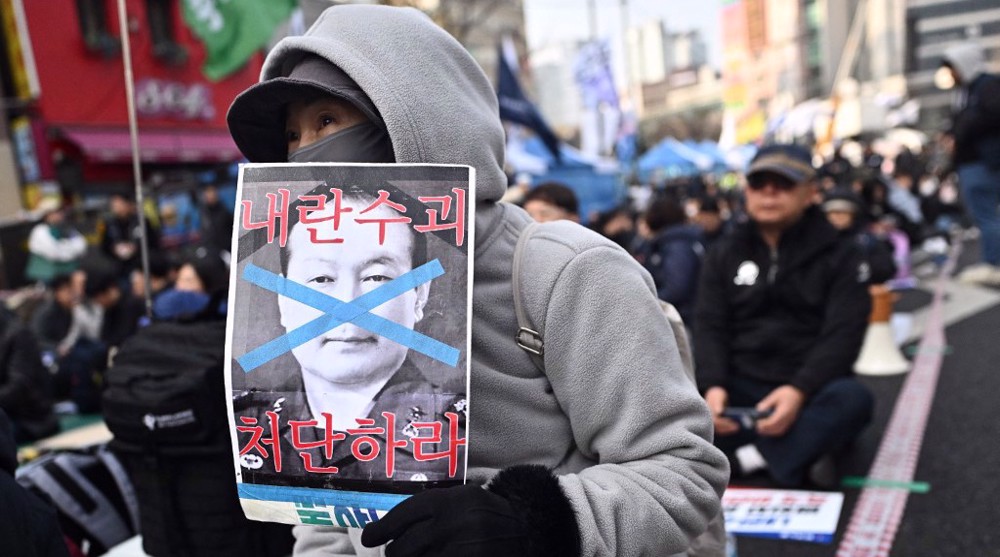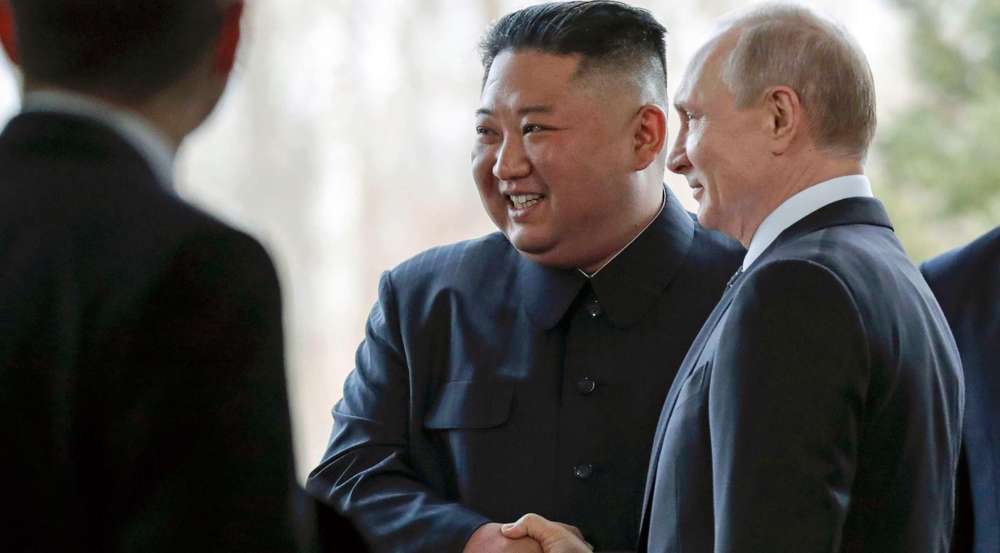North Korea missile launch fails, US, South Korea say
North Korea has failed in its attempt to launch what is said to be a medium-range ballistic missile, the United States and South Korea claim.
A spokesman for the US Defense Department said Pyongyang tried to launch the missile early on Friday, but it was assessed a failure by the US Strategic Command that detected and tracked the missile.
A South Korean official also said that the neighboring North attempted to test-fire a mobile Musudan or BM-25 missile, but it failed.
The reported launch coincided with the 104th birthday anniversary of the country’s founding leader Kim Il-Sung, the grandfather of current leader Kim Jong-un.
The missile is believed to be capable of striking the US military bases in Guam Island.
Authorities in Pyongyang have not made any comments on report so far.

On Thursday, South Korea’s Yonhap news agency cited an anonymous Seoul official as saying that the North was preparing to launch mid-range ballistic missiles, and that it had deployed one or two Musudan ballistic missiles around the eastern port city of Wonsan about three weeks ago.
On April 9, Pyongyang said it had successfully tested an engine designed for an intercontinental ballistic missile that will enable the country to stage nuclear attacks on the US.
North Korea declared itself a nuclear power in 2005 and carried out four nuclear weapons tests in 2006, 2009, 2013 and 2016.
It also launched a long-range rocket February this year, which Pyongyang said was aimed at placing an earth observation satellite into orbit. However, the US and South Korea denounced the move as a cover for an intercontinental ballistic missile test.
The UN Security Council responded to the nuclear tests and missile launches with its toughest sanctions. Under the current UN resolutions, North Korea is banned from using any technology that is related to ballistic missile.
Pyongyang accuses the US of plotting with regional allies to topple its government, and says it will not relinquish its nuclear deterrence unless Washington ends its hostile policy toward Pyongyang and dissolves the US-led UN command in South Korea.

China ‘firmly’ opposes countries making trade agreements with US at its expense

South Korea's court removes president over martial law controversy

Official: Russia preparing for visit by North Korean leader
VIDEO | Iran-China-Russia partnership
VIDEO | Press TV's news headlines
Netanyahu’s anger source of joy for us: Ansarullah
Iran, China working resolutely to safeguard mutual interests: Tehran says as FM departs for Beijing
Yemen asserts enhanced military readiness; takes US aircraft carriers under firepower
VIDEO | Iran seeks foreign investment to boost oil, gas sectors
Iran condemns terror attack in India's Kashmir region
After second Signalgate scandal, Democrats call for Hegseth’s resignation












 This makes it easy to access the Press TV website
This makes it easy to access the Press TV website